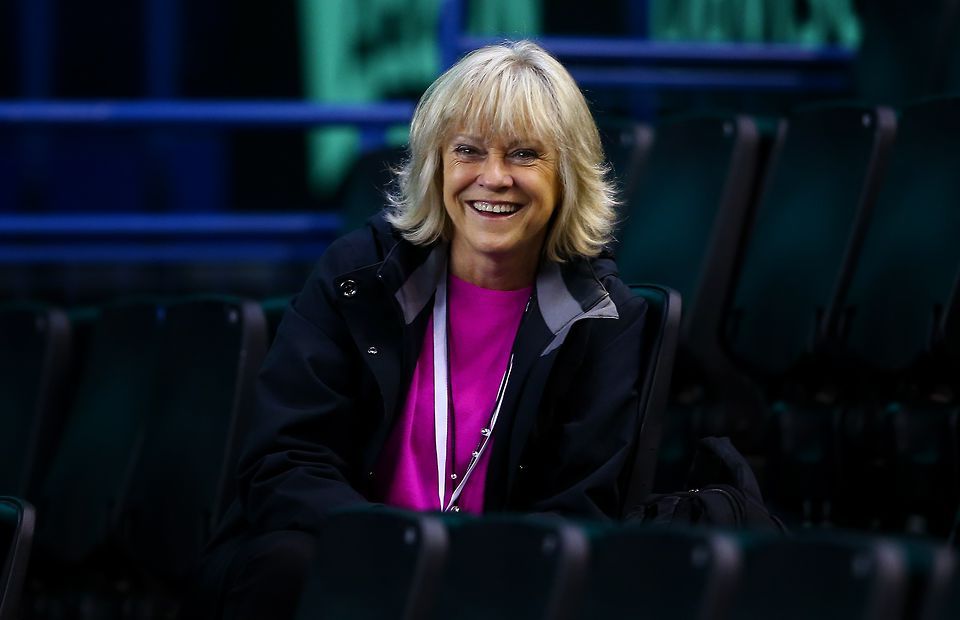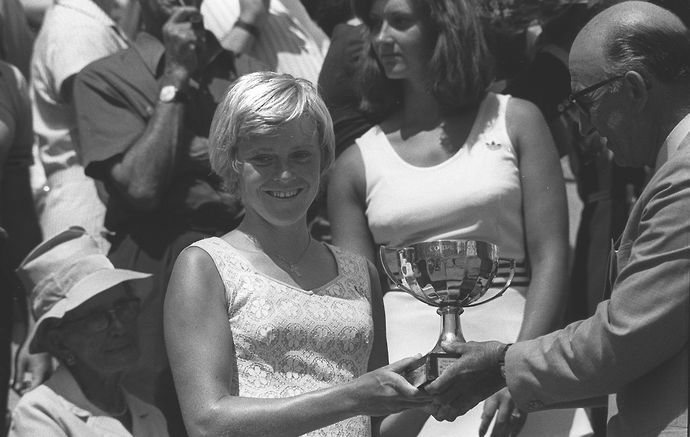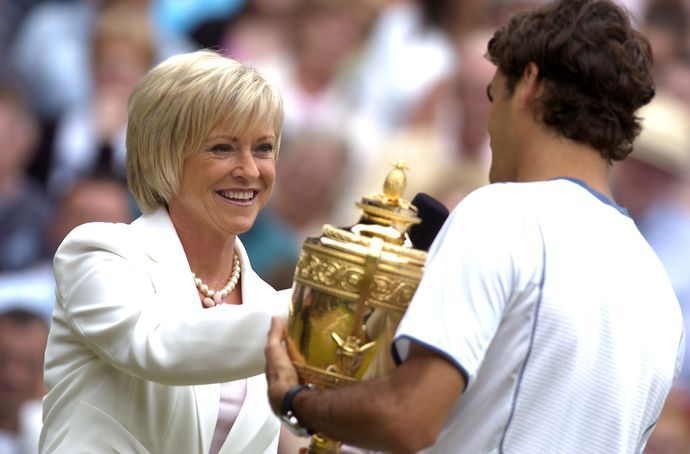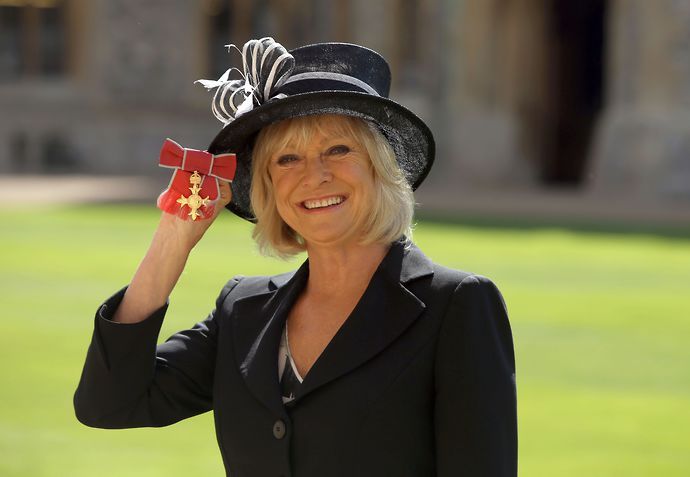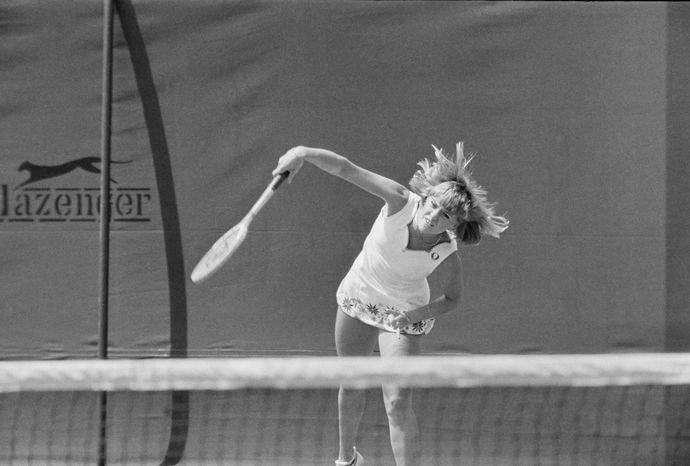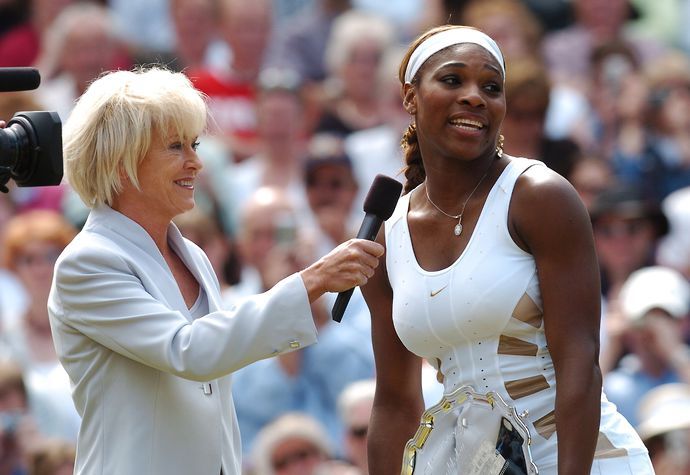It’s been 45 years since a British tennis player won the French Open.
In men’s tennis, Fred Perry was the last Briton to succeed at the French Championships, as it was then known back in 1935. On the women’s side, Ann Haydon-Jones and Angela Mortimer were also French Championship winners during the 1950s and 60s.
But since the tournament was renamed in the Open Era, there has been only one British winner – Sue Barker in 1976.
Ironically, Barker’s name was inscribed on the trophy next to four capital letters: AUST. The Devon-born player had been incorrectly identified as an Australian on the Coupe Suzanne Lenglen.
Despite the trophy mistake, Barker was the last British woman to win the French Open. And it’s a record which will stand for another year as Johanna Konta and Heather Watson both experienced disappointing first round exits at Roland Garros earlier this week.
As the action continues to unfold at this year’s French Open, GiveMeSport Women takes a look at the career of Sue Barker, diving into the details of her first and only Grand Slam title.
Perhaps for younger generations, Barker is more recognisable for her roles on television rather than her tennis career. She generally features on our screens during coverage of major tennis events, and she has only recently left her presenting role on the popular quiz show A Question of Sport after 23 years at the helm.
But before broadcasting, Barker made her name in tennis.
And whilst her sporting CV might not be up there with the greats like Chris Evert, Serena Williams or Steffi Graf, Barker was once ranked as the world number three and she won a major title – something that hasn’t been done by a British woman since Virgina Wade won at Wimbledon in 1977, the year after Barker triumphed at the French Open.
Barker established herself as a top player in 1975. Her experience of major tournaments prior to that year’s Australian Open was limited. She reached the semi-finals, but the eventual winner and world number three at the time, Evonne Goolagong, was too much for the British youngster.
She had made a name for herself and progressed to the third round at Wimbledon. Barker also won five Virginia Slims Championships, now known as the WTA Tour finals, later that year.
Then came 1976, the most successful year of Barker’s career. She was on a high ahead of the French Open, as just a couple of weeks earlier, she had defeated Renáta Tomanová to win the German Open.
Barker was only 20-years-old at the time of the 1976 French Open but was the top seed. Two-time reigning champion Evert had elected not to compete, choosing World Team Tennis instead along with Barker’s fellow Brit, Virgina Wade.
Nevertheless, Barker eased through the early rounds, winning the first and second in straight sets. In the semi-final she won 3-6, 6-1, 2-6 against Virginia Ruzici, a Romanian player who would follow in Barker’s footsteps by picking up her first and only Grand Slam title at the French Open in 1978.
In the final, Renáta Tomanová was once again Barker’s opponent. The Czechoslovakian had already proved herself earlier that season, reaching the final of the Australian Open but falling short against Evonne Goolagong.
It was only Barker's second appearance at Roland Garros but she was at home on the clay. It was always her preferred surface and it showed in her WTA Tour record, winning six of seven finals on clay.
For Barker, it was fitting her one major title arrived on the clay surface of Court Centrale. She won the first set confidently 6-2 but Tomanová was dominant in the second and Barker failed to win a single game. Yet, she overcame the nerves and changed the momentum to finally win 6-2, 0-6, 6-2.
Years after her French Open victory, Barker recalled the Grand Slam glory to BBC Sport: “My celebrations weren’t exactly over the top – I remember walking off thinking ‘great, that’s the first one down.’
“I had only just turned 20 and I just always felt that I would win Grand Slams - it was just a case of when – so when I won the French Open, it was more a sense of relief.”
Little did Barker know that her first Grand Slam trophy would be the last. It’s not as if her form fell off a cliff. She had a good year in 1977, before it started to deteriorate from 1978 onwards with injuries starting to creep in.
She reached the semi-finals at both the Australian Open and Wimbledon in ‘77. In Melbourne, she was once again beaten by an Aussie, and the defeat at Wimbledon came as a shock to many.
Barker was the fourth seed heading into the All England Lawn Tennis Championships. She looked set to meet Wade for an all-English final but Dutch player, Betty Stӧve, ruined the British party, beating Barker 6-4, 2-6, 6-4.
Looking back, it is a shame that there wasn’t a greater rivalry between Wade and Barker that extended into Grand Slam finals.
The pair were at the top of their game during the same period and an all-English Wimbledon final in the same year as the Queen’s Silver Jubilee would have been one to remember for decades.
And Barker knew it. After her retirement, she admitted that the loss to Stӧve was the biggest disappointment of her career.
But you only have to look at the lack of British success succeeding Wade and Barker to appreciate their achievements. No British woman has been in a Grand Slam final since 1977 Wimbledon.
Barker may be remembered more for her career in broadcasting, but her French Open win should not be forgotten and it should not be undermined by Wade’s two extra titles.
Barker ranked as one of the top five players in the world. Her formidable forehand was voted as the best on the women’s tour for five successive years.
Yes, she never ranked number one but she did beat the best – Billie Jean King, Chris Evert, Martina Navratilova and Goolagong. Barker was a British great.




















